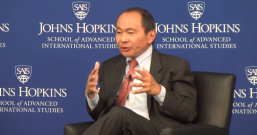We need to rethink how K-12 interlinks with undergraduate education and how undergraduate education interlinks with professional training.
Scott Yenor
The American university's emulation of the German model paved the path of progressive politics and the rise of the administrative state.
Hume’s most explicit departure from ancient Epicureans deepens his radical adherence to Epicurean conventionalism.
The country is caught between two irreconcilable regimes: one informed by liberal ideals, the other by the ethic of anti-discrimination.
Richard Reeves wants to crack the door to nature, but he may need to open it wider.
Daniel Klein and Michael Munger are right to worry about tyranny. But reforming the system that oligarchic tyrants control is a fool's errand.
Not repairing walls, but toppling fortresses and building new towers are orders of the day.
Scott Yenor responds to Tyler Syck's and Mark Tooley's criticism of national conservativism.
The pseudonymous "Paracelsus" argues that America's medical system is profoundly and perhaps irretrievably broken.
Activists have learned how to use Title IX to suppress free speech.
Harry Jaffa believed that America was an exceptional nation. He still anticipated many of today's social ills.
Some liberal academics understand that call-out culture has gone too far. Their proposed solutions are woefully inadequate.
Is Willmoore Kendall's private life necessary to understand his public thought?
Public institutions infused with an ideology will not just roll over. They must be rebuilt.
Bachiochi’s book avoids the question of trade-offs by offering up a free lunch of à la carte feminism.
Many parenting priorities among the upper-middle class include self-imposed competitive regimes that end up limiting parental control.
Millstones grind grain into flour, and Solzhenitsyn’s focus is on how the two great political systems of the mid-20th century grind human souls into dust.
Educating for American Democracy attempts to show a civil way forward. But its unprincipled model of civility promises only a dead end and defeat.
Jordan Peterson has written a Nicomachean Ethics for our day, when pernicious ideologies drown out the voice of nature.
Children represent hope, and people without hope are not going to be bribed into having children.
We must re-train our ears to hear what social justice ideology peddles.
Hofstadter was too much a partisan to notice his own blinders, and too little a philosopher to see the permanent things.
The 2020 election did not decide once and for all the future of liberty in America.
Revolutions involve conspiracies of a sort—suppressed intentions and a peaceable surface combined with a determined adherence to the revolutionary cause.
Did the practice of civility, if such there was, stave off our culture wars or abet them?
Our deepest official lie is that the line between good and evil runs through sexes, classes, and races—not through every human heart.
Deaths of despair are related to questions of meaning and the psychological conditions for social malaise.
No strictly political community brings political salvation.
Products of the old education would have cheeks that burn red when the country was disrespected. Today’s students only blush at their own "privilege."
No stable common ground has been found with the Left as they march through our institutions creating new, ever more radical and unhealthy ones.
Dostovesky suggests an appeal to the nation untouched with a concern for eternity itself will prove insufficient to defeat ideology.
What goes into one’s body can sometimes be an object for public concern; the question is when and how.
There is no guarantee that science, technology, liberal democracy, commercial greatness, or military strength will go on much longer in a liberal regime.
The best arguments against deregulating obscenity were made at the most crucial time of policy change; but few ears heard them.
A transpartisan consensus is forming around the importance of families to individual well-being, and the importance of genuine education to self-government.
Communities may restrain liberty. These social features of human nature are as much a part of our mental furniture as the love of liberty—perhaps more so.
Scott Yenor offers a first-hand account of Boise State's transformation from a bastion of the liberal arts to a social justice university.
Scott Yenor is Senior Director of State Coalitions at the Claremont Institute’s Center for the American Way of Life and a professor of political science at Boise State University.









































